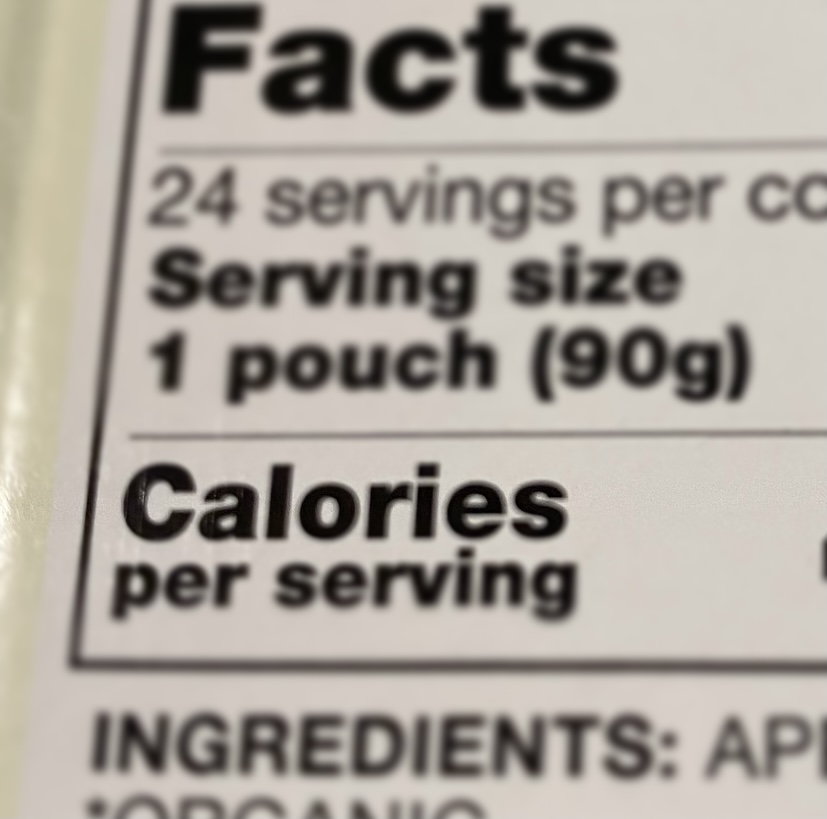OPINION: Using a calorie reduction strategy for losing weight will always disappoint you
Photo Courtesy: Camila Aguero-Salas
The number of Calories is present on the Nutrition Facts of a box of snacks. For people on weight loss or gain journeys, calories may be something they check often when purchasing food.
December 10, 2020
Cutting calories is a strategy commonly used to lose weight. The mindset generally falls into the lines of “if I eat fewer calories, I’ll gain less weight” or “if I eat fewer calories and work out more, I’ll lose weight.” However, this method of losing weight does not take into account how the body actually works, which is why it will always fail to give people expecting to lose weight.
The logic to calories in-calories out strategy is that if you consume fewer calories than your body needs, your body will burn fat that’s already stored. However, calories from different foods can have dramatically different effects on the body. They trigger different hormones which can cause different reactions.
Dr. Jason Fung, a diabetes and obesity researcher, explains that if someone eats a form of carbohydrate such as a cookie, the hormone insulin will go up. Insulin is a hormone that regulates the body’s blood sugar levels and breaks down carbohydrates into glucose, which are sugars that the body uses for energy. The insulin determines whether the glucose will be used for energy or stored as fat.
On the other hand, if someone were to eat protein, their body will receive instructions to build muscle. Different kinds of food can also trigger the peptide YY hormone which tells our body whether it is full or not. Eggs will trigger this hormone so that the body will stop eating. Soda will not, and, will therefore not keep the body full. 300 calories of lettuce, would not have the same effect as 300 calories of bread, which is one reason why measuring calorie consumption should not be used.
Our body does not even have a way of measuring calories. As Dr. Fung says, our body does not have any special receptors that count how many calories someone eats in a day. Our body responds to food based on what kind of hormone is triggered. A calorie is a measure of how much heat energy it takes to burn something, which is not specific to food. Calories can be measured on anything. Whether it be a piece of steak or a slab of wood. It only measures how much energy we take in but does not take into account what type of food that is.
One reason that many people cannot lose weight is that they cannot target the stored fat. Dr. Fung compares the body’s stored fat to a freezer, and the daily food we intake as the fridge. It’s easier to take food in and out of the fridge, but when the fridge fills up, the food goes into the freezer. Because insulin controls whether carbs or food is stored as energy or fat, it’s important to know when insulin levels are high, and when they are low.
Generally, the levels of insulin in the body are highest when it is time to eat. When we eat, the body’s insulin levels go up, which means that the body is storing glucose for later energy. Which is another factor why people who strictly follow the calorie deficit, and routinely work out, can be disappointed when no weight loss is evident. It is not just about how many calories you take in, but also when your body is in a storing fat stage versus a burning fat stage.
Counting calories can work for some people, but there is a reason why it does not work in the long run for many people. It is crucial that people trying to lose weight understand the physiological mechanisms that play a part in weight gain, not just how many calories they eat. Until these mechanisms can be understood, and people make changes to their lifestyle that will align with those understandings, approaching weight loss by calorie deficit will continue to disappoint them.







